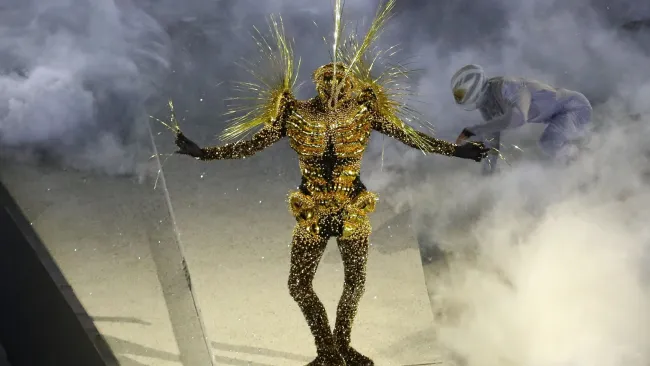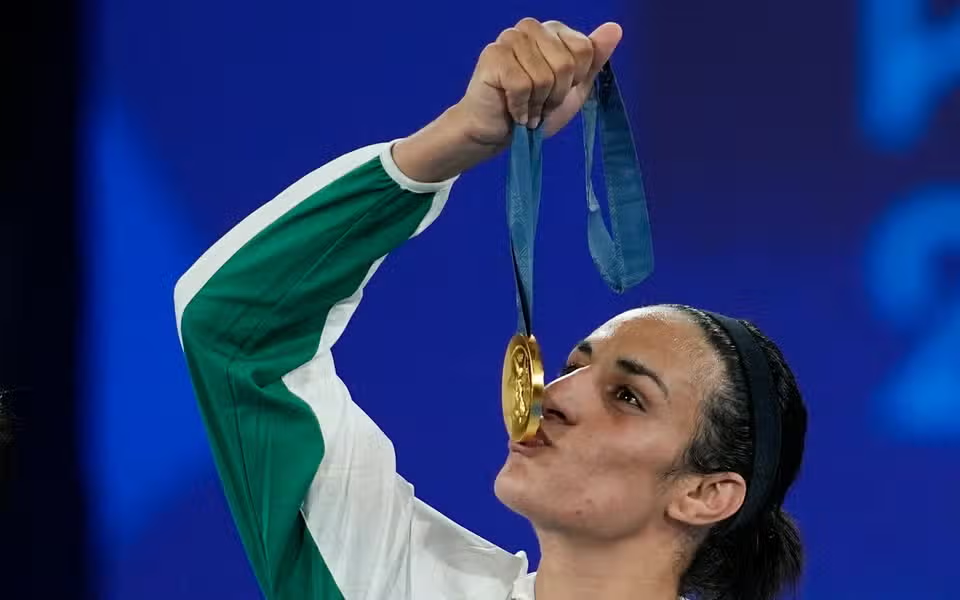With the conclusion of the Paris Olympics and as athletes eye the 2028 Los Angeles Games, China continues to hit the United States with doping allegations.
"The competition on the field has come to an end, but the fight to preserve sportsmanship continues," the state-run China Central Television (CCTV) News wrote on Monday on Chinese social media. "The doping scandal in the U.S. is still brewing."
Beijing has doubled down on such claims amid the controversy swirling around Team China over nearly two dozen athletes who tested positive for a banned substance ahead of the previous Summer Games in Tokyo.
The country has made 20-year-old American sprinter Erriyon Knighton a focus of its messaging campaign.
Earlier this year, Knighton tested positive for trenbolone, an anabolic steroid commonly used in the U.S. to induce muscle growth in beef cattle. The U.S. Anti-Doping Agency (USADA) cleared him for competition after an independent arbiter decided there was sufficient evidence the restaurant where Knighton had eaten had sold trenbolone-contaminated meat.
State media and the China Anti-Doping Agency (CHINADA) pointed out other athletes have previously been penalized after signs of trenbolone ingestion and criticized the USADA for not sharing its findings with the World Anti-Doping Agency for verification.
CCTV went on to label the U.S. as the "most capable of drug use" and the "most likely to find trouble with other countries." The media outlet also questioned whether the U.S. government would arrest those who disagreed with it during the the L.A. Olympics.
Earlier this year, The New York Times reported that 23 Chinese swimmers had tested positive for trimetazidine (TMZ), ahead of the Summer Olympics in Tokyo in 2021. TMZ is banned by the WADA for its performance-boosting potential.
WADA accepted China's explanation that the test results were due to accidental contamination at the athletes' hotel, and no penalties were imposed. Of the 23 swimmers, 11 competed in this year's Games.
Reached by for comment, the USADA directed Newsweek to a statement from CEO Travis Tygart released to social media last week.
"What is clear by today's release is that CHINADA will resort to misdirection and propaganda to attempt to deflect from the fact that it swept 23 positive tests for TMZ under the carpet, as well two positive tests for metandienone or dianabol, both powerful performance-enhancing drugs," Tygart said.
Tygart added that "the reason that anyone can comment on the Knighton case" is that the USADA was transparent in its inquiry and "published the outcome of the Knighton case as required by the rules." He pointed out WADA can appeal the decision if it finds fault with the decision of the case.
WADA also has an appeal right, and it can still appeal if it disagrees with the independent arbitrator's reasoned decision, Tygard stated.
Disclaimer: The copyright of this article belongs to the original author. Reposting this article is solely for the purpose of information dissemination and does not constitute any investment advice. If there is any infringement, please contact us immediately. We will make corrections or deletions as necessary. Thank you.





